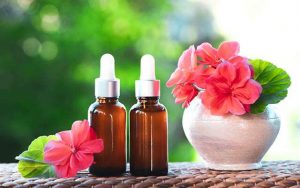Are you struggling with healthy looking skin? Need some advice?
Here are eight tips to help your skin look and feel it’s best.
1) Select moisturizers made with vegetable oils. The lotions, creams and body oils that you use should be made with vegetable oils, not mineral oil. Vegetable oils, (like olive oil, sweet almond oil, corn oil, etc.) contain fatty acids which help to moisturize and soften the skin. Mineral oil is derived from petroleum and does not contain anything that helps to nourish the skin.
2) Look for herbs and herbal derivatives in your cosmetics. Herbs and their derivatives (essential oils, extracts, infusions) contain natural chemicals which soothe, tone and help condition the skin. Two herbs which are especially useful in natural cosmetics are Lavender and Tea tree. The essential oils of both lavender and tea tree are gentle, natural antiseptics.
3) Once a week soak your feet in warm water, and gently exfoliate dead skin with a pumice stone. Follow up by moisturizing your feet with a natural foot oil or foot lotion.
4) Eat foods that help promote healthy skin.
- Fatty fish. Fatty fish, such as salmon, mackerel, and herring, are excellent foods for healthy skin
- Avocados. Avocados are high in beneficial fats and contain vitamins E and C, which are important for healthy skin. They also pack compounds that may protect your skin from sun damage.
- Walnuts. Walnuts are a good source of essential fats, zinc, vitamin E, selenium and protein — all of which are nutrients your skin needs to stay healthy.
- Sunflower seeds. Sunflower seeds are an excellent source of nutrients, including vitamin E, which is an important antioxidant for the skin.
- Dark Chocolate. Cocoa contains antioxidants that may protect your skin against sunburn. These antioxidants may also improve wrinkles, skin thickness, hydration, blood flow, and skin texture.
- Sweet potatoes. Sweet potatoes are an excellent source of beta carotene, which acts as a natural sunblock and may protect your skin from sun damage.
- Green Tea. The catechins found in green tea are powerful antioxidants that can protect your skin against sun damage and reduce redness, as well as improve its hydration, thickness and elasticity.
- Red or yellow bell peppers. Bell peppers contain plenty of beta carotene and vitamin C — both of which are important antioxidants for your skin. Vitamin C is also necessary to create collagen, the structural protein that keeps your skin strong.
- Broccoli. Broccoli is a good source of vitamins, minerals, and carotenoids that are important for skin health. It also contains sulforaphane, which may help prevent skin cancer and protect your skin from sunburn.
- Tomatoes. Tomatoes are a good source of vitamin C and all of the major carotenoids, especially lycopene. These carotenoids protect your skin from sun damage and may help prevent wrinkling.
5) After a shower or bath, seal in moisture by using a body oil or lotion made from natural vegetable oils.
6) If you have blemishes and your skin is dry, moisturize your skin in the morning and at night with products that contain vegetable oils which are high in essential fatty acids. Essential fatty acids help to soften and hydrate the skin and they can also help soothe minor irritations. Vegetable oils that contain large amounts of essential fatty acids are: corn oil, sunflower seed oil, safflower oil, borage oil, blackcurrant seed oil and evening primrose oil.
7) Look for toners and astringents that are made without ethyl alcohol, rubbing alcohol or isopropyl alcohol. These ingredients are solvents that are extremely drying to the skin.
8) Every time you wash your hands, moisturize them with a natural lotion or cream to help them stay soft.







Be First to Comment